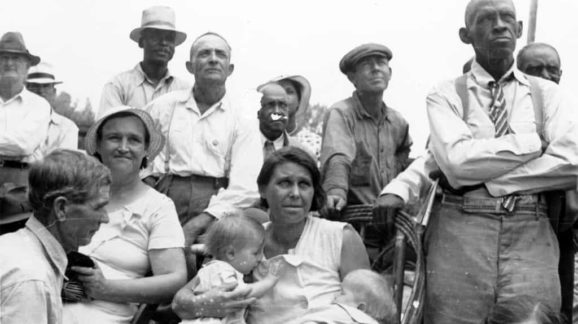Protectionism Keeps People Poor

Why do people trade with each other at all? Because it makes them better off. As Iain Murray’s and my paper “Traders of the Lost Ark” opens:
Imagine yourself on a tropical island. Plenty of sunshine, trees for shade, and beautiful white sand beaches all around. You have the whole place to yourself. This idyllic paradise would be one of the poorest places on Earth. Why? Because you would have no one to trade with.
In the wider world, everyone is good at something, but nobody is good at everything. That is why people specialize and trade with one another. You might be good at catching fish, but lack the woodworking skills to build a sturdy shelter. If you had another person with you on the island, she might be handy with construction, but not much good at fishing. Instead of toiling separately at both tasks to middling results, you could specialize—you catch fish; she builds a shelter. Both of you can have full stomachs and a roof overhead, and are both better off.
Now instead of two specialists, imagine 7 billion of them. The same logic applies in both cases. That is why for more than 75 years, one of the post-war international community’s biggest projects has been, slowly but surely, lifting trade barriers in countries across the world. Here in the U.S., the average dutiable good carried a 59 percent tariff in the wake of the 1930 Smoot-Hawley tariff. That figure was down to 5 percent when Trump took office—more than a 90 percent reduction. Other countries around the world can tell similar stories. Freer trade is one reason why real per capita global GDP has moved from less than $1.25 per day in 1960 to nearly $30 per day in 2017.
Here in the U.S., the average person makes more than $163 per day, up from $8.24 in 1960. That is a massive improvement in living standards, especially for the poor. Ever-increasing increasing trading opportunities and specialization have a lot to do with it.
The case for free trade is about more than economic efficiency. At heart, free trade is a moral issue. Everyone who wants to make the world better off should be advocating for lower trade barriers around the world. The current administration’s return to pre-industrial trade policies are not just bad politics and bad economics; Trump’s trade policies disproportionately hurt the poor.
Tariffs on agricultural products mean higher food prices. As a proportion of income, the poor spend more on food than their better-off fellows, leaving less left over for other needs, such as transportation and rent. Speaking of which, new steel tariffs mean more expensive cars and buildings. Guess who pays proportionally more for transportation and rent? And so on, for tariffs on thousands of goods that were not in place a year ago.
The principles behind free trade are economically sound and morally right. Economists, who disagree on with each other on most everything else, have almost unanimously favored free trade since the days of Adam Smith.
As we also note in our paper, “The basic principles of a free society are timeless, but they need to be relearned every generation.” This lesson applies to this generation’s conservatives more than most. If there was any doubt that party affiliation trumps principle, those doubts were removed when a Republican-controlled Congress stood idly by as President Trump enacted tariff after tariff, plus a bailout for some of the farmers hurt by those tariffs. Just as many progressives need to be reminded that openness and trade help the poor, so do conservatives need to be reminded that their defense of tradition needs to extend further back than a year and a half.
For more, read the full “Traders of the Lost Ark” paper here.